Photo: Nicci Briann
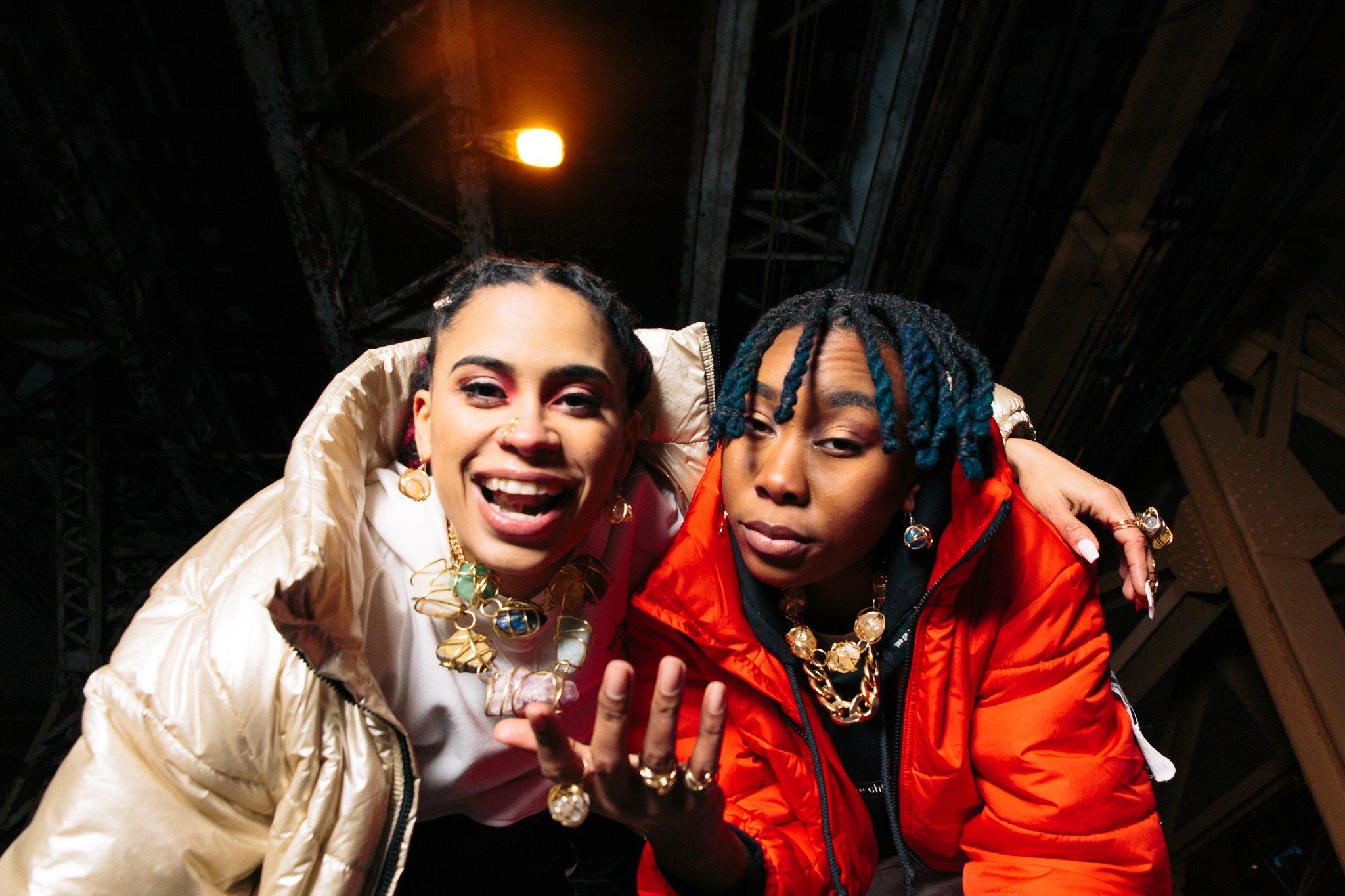
Mother Nature
news
Meet Mother Nature, The Chicago Rap Duo That Teach & Live Self-Expression Through Their Miseducation Of HipHop Youth Workshops
"We invite especially our young men to come out and just express themselves in a way that they are comfortable, which is hip-hop, music," TRUTH, one half of Mother Nature, recently told GRAMMY.com
For rap duo Mother Nature, music and education are inseparable. Since joining together in the music scene in college town Champaign, Illinois in 2015 and relocating to Chicago in 2016, Shasta Matthew and Tierney Reed, a.k.a. Klevah and TRUTH, have developed their Miseducation of HipHop workshop series concurrently with their own music careers.
The Miseducation of HipHop workshops are music-based, youth-focused programs that aim to “address and improve mental health issues in adolescents globally using the language of hip-hop,” according to their website.
Over 600 students have participated in Miseducation workshops since they began in 2015, including through partnerships with more established organizations like Guitars Over Guns and After School Matters. Though Klevah and TRUTH have modified each session depending on the number and needs of the students, they have focused on the shared self-expression of cyphers; group freestyle sessions.
A video from the workshop YouTube page (watch above) offers a moving example of the cypher. As his peers stand in a loose circle around him, a teen student raps about his efforts to cope with his cousin’s death with visible fake-it-til-you-make-it confidence. “We invite especially our young men to come out and just express themselves in a way that they are comfortable, which is hip-hop, music, rap,” TRUTH says via video call, from the Bronzeville apartment she shares with Klevah and collaborators from their Gr8Thinkaz crew.
“What you didn't see is because he got that vulnerable and spit what he spit, the next person on top of that had more to add to that narrative. The person after that had more to talk about the narrative and slowly became a place where like, alright, this ain't therapy, but it is,” Klevah adds. “You're coming here, you're speaking your truth, and you're gaining knowledge from others in the process.”
TRUTH and Klevah have continued to run workshops through the pandemic virtually, including their first classes for students in Los Angeles, as they sharpen their own skills through cyphers and recordings. Mother Nature’s upcoming mixtape SZNZ is produced entirely by BoatHouse, the house producer of Chicago indie label Closed Sessions, and features guest verses from local rappers like Valee, Sir Michael Rocks of the Cool Kids, and more.
Related: The OutKast College Course Teaching Students About The Post-Civil Rights South
GRAMMY.com spoke to TRUTH and Klevah by phone in mid-March about building relationships with their mentees, modeling authenticity to the younger generation, and expanding the Chicago rap scene.
This interview has been edited and condensed for length and clarity.
What’s new since you launched your first virtual workshops last summer?
TRUTH: We've been revamping, just getting things into the virtual sphere. We've expanded our team, we've been able to collaborate more with Guitars Over Guns and After School Matters and we are in the middle of doing a pilot program in L.A.
Klevah: The space that everyone is in educationally drives the need for our program. Schools are all doing this virtual portal type of thing. We kind of gauged our students, and they're not really learning as much as they were when they were in school [in-person]. I just think it makes it necessary, especially in Chicago, to be able to teach, but in a completely alternative way.
Originally, we're like, man, we got to do a tour where we're popping up at these schools, we're doing these lunchroom jams. But now we can probably impact even more students by being able to be nationwide from our living room. At the end of the day, we are going to have a university. Miseducation is gonna be big, I believe that we're going to impact a lot of students, we're going to pick a lot of young artists and help them find their pathway to success. So we're just along for the ride, you feeling me?
Your workshops are often specific to a school or organization. Do you have open events in addition to those, where you maintain relationships with past students?
TRUTH: We do a cypher called the Gr8Cypher with our larger collective the Gr8Thinkaz. We open it up to all Chicago, all of our mentees and things like that.
Klevah: It’s very intergenerational. The young homies, the big homies, even the little kids pop in, and get a part of that. It's really dope, because they'll come in just as confident and just as boisterous as the next person. I think that we end up practicing this in our daily lives, like our students become our teachers sometimes. Really, our students become our interns, our mentees, our producers. We're not just, you know, giving you a certificate. We're building with each other, and we genuinely care about you.
So whatever it is that you need, we’re gonna give you the game. And if there's room for us to collaborate and room for us to be more valuable to each other—it's definitely happened in the past—it's a really special situation when it does happen.
TRUTH: One of our tracks is produced by one of our mentees. Because we are expanding, and we have been able to touch more students quicker than we have in the past, we are figuring out how to increase the retention rate, so we've been just using social media day by day and making little group chats, so they know the door's always open, and they can always hit us up, whatever the case may be. If it's something specific, like you're trying to do beat production, you're trying to do graphic design, you know, anything outside of what we do specifically, well, we have homies that we can tap into then.
How has the educational work influenced your own music?
TRUTH: It makes us be more consistent, more intentional, definitely. Everything that we speak, it has to be real. We can't be all, "We over here doing this, we got money, we da da da da da." No, we’re manifesting, working towards it. And to be heavily consistent in the spiritual, I think is very vital.
As we dive into our classes, too, that's what captures a lot of students and what makes them open up the most, is when we’re talking about spirituality and meditation, those types of things. We all deal with anxiety and depression and all these different types of things, but hip-hop is an avenue that you can take that allows you to explore yourself in ways that you might not be able to talk to somebody off the bat.
Klevah: It's hard to separate those things. We definitely have our more adult content and the content that we specifically give to our kids, but it's really still all one and the same, you know what I'm saying? I think it's a beautiful thing. I think that it also reminds people that you can completely be yourself: this is who we are, we're educated humans. I've been mentoring since I've been out of high school, and it's so dope that I can take this with me on my journey through hip-hop.
Can you talk a little bit more about your idea of "real" and how you talk about that with your kids and being true to yourself in your lyrics?
Klevah: Man, this past week, our lesson was authenticity, what it means to be authentic to the self, how that sustains us, how that informs us, how that keeps us creative. The more that we dive into the things that make us weird, or the things that people don't understand, the things we don't understand about ourselves, it just creates new avenues to explore in yourself. For me, that’s what makes life continually interesting. How much more can I know myself? How much more can I be myself?
TRUTH: I feel like that allows for other people to gravitate to us, as well as make them more comfortable in their own skin. ‘Cause I'm out here, acting silly and doing myself, I think that allows for our kids to really think of that in a different way.
One of the activities that we do, we will listen to a song and break down the lyrics, like, "Do you agree with this? Do you think he’s telling the truth? Do you think this is reality?” Hip-hop is always, you know, flamboyant and hyperbole, but when we ask them about the lyrics that they gravitate towards, it be the emotional stuff, it be the more slow tempo type of vibes. They're really like, "Man, they're saying something that I connect with, internally." So they know what real is, but they also know when it's been fabricated.
How did the features on your new project come together?
TRUTH: The first idea was that we just wanted this to be very Chicago. It only makes it right for us to get all Chicago features, lowkey artists that people may not know, but also those big, underground legends of Chicago as well.
Klevah: We're trying to create this culture of collaboration, cypher building, and we want to take that to the industry.
TRUTH: That's one of our biggest things: we want to be the artists that shake the scene so hard that we bring the old Gs out of retirement. With the homies, that was like, "Yo G, we need a verse, I'm about to send you this, send it back in like, two days."
Klevah: We already could hear you on it, but also if this ends up being one of the tapes that really goes up, you know, makes Mother Nature bigger, then I really need my homies on here with me.
You just did a virtual show with Freddie Old Soul, who features on the project. How was that performance?
Klevah: We needed it. We needed to get out of the house, be around some Black girl geniuses. I think that we’re getting used to small spaces, or going places and only being around a few people. But, I think that it just allows for us all to intimately connect, and the energy was just clear on camera. It gave us an opportunity to go crazy. It was dope. We miss performing
TRUTH: That was our first time performing "Momentz," so that was beautiful. That was no rehearsal. That was just what we were feeling. It felt different, like, ooh yeah we got to stay in this bag, bro.

Photo: Matt Jelonek/Getty Images
list
Ice Spice Is The Drill Queen On 'Y2K!': 5 Takeaways From Her Debut Album
The 10-track LP clocks in at just under 24 minutes, but it's packed with insanely quotable one-liners, star-studded collaborations, and bold statements.
Since Ice Spice first caught our attention two summers ago, she's been nothing short of a rap sensation. From viral hits like her breakout "Munch (Feelin' U)," to co-signs from Drake and Cardi B, to a Best New Artist nomination at the 2024 GRAMMYs, the Bronx native continues to build on her momentum — and now, she adds a debut album to her feats.
Poised to be one of the hottest drops of the summer, Y2K! expands on Ice Spice's nonchalant flow and showcases her versatility across 10 unabashedly fierce tracks. She dabbles in Jersey club on "Did It First," throws fiery lines on lead single "Think U the S— (Fart)," and follows the album's nostalgic title with an interpolation of an early '00s Sean Paul hit on "Gimmie a Light."
Y2K! also adds more star-studded features to Ice Spice's catalog, with Travis Scott, Gunna and Central Cee featuring on "Oh Shh...," "B— I'm Packin'," and "Did It First," respectively. At the helm is producer RiotUSA, Ice Spice's longtime friend-turned-collaborator who has had a hand in producing most of the rapper's music — proving that she's found her stride.
As you stream Ice Spice's new album, here are five key takeaways from her much-awaited debut, Y2K!.
She Doubles Down On Bronx Drill
Ice Spice is one of the few ladies holding down the New York drill scene on a mainstream level. She's particularly rooted in Bronx drill, a hip-hop subgenre known for its hard-hitting 808s, high-hats and synthesizers — and according to the sounds of Y2K!, it’s seemingly always going to be part of her artistry.
"It's always time to evolve and grow as an artist, so I'm not rushing to jump into another sound or rushing to do something different," Ice Spice told Apple Music of her tried-and-true musical style.
While Y2K! may not be as drill-driven as her debut EP Like…?, the album further hints that Ice isn't ready to retire the sound anytime soon. The subgenre is the dominant force across the album's 10 tracks, and most evident in "Did It First," "Gimmie a Light" and "BB Belt." Even so, she continues her knack for putting her own flair on drill, bringing elements of trap and electronic music into bops like "Oh Shhh…" and "Think U the S— (Fart)."
She Recruited Producers Old & New
Minus a few tunes, all of Ice Spice's songs start off with her signature "Stop playing with 'em, Riot" catchphrase — a direct nod to her right-hand man RiotUSA. Ice and Riot met while attending Purchase College in New York, and they've been making music together since 2021's "Bully Freestyle," which served as Ice's debut single. "As I was growing, she was growing, and we just kept it in-house and are growing together," Riot told Finals in a 2022 interview.
Riot produced every track on Like.. ? as well as "Barbie World," her GRAMMY-nominated Barbie soundtrack hit with Nicki Minaj. Their musical chemistry continues to shine on Y2K!, as Riot had a hand in each of the LP's 10 tracks.
In a surprising move, though, Ice doesn't just lean on Riot this time around. Synthetic, who worked on Lil Uzi Vert's GRAMMY-nominated "Just Wanna Rock," brings his Midas touch to "Think U the S—." Elsewhere, "B— I'm Packin'" is co-produced by Riot, Dj Heroin, and indie-pop duo Ojivolta, who earned a GRAMMY nomination in 2022 for their work on Kanye West's Donda. But even with others in the room, Riot's succinct-yet-boisterous beats paired with Ice's soft-spoken delivery once again prove to be the winning formula.
She Loves Her Y2K Culture
Named after Ice Spice's birthdate (January 1, 2000), her debut album celebrates all things Y2K, along with the music and colorful aesthetics that defined the exciting era. To drive home the album's throwback theme, Ice tapped iconic photographer David LaChapelle for the cover artwork, which features the emcee posing outside a graffiti-ridden subway station entrance. LaChapelle's vibrant, kitschy photoshoots of Mariah Carey, Lil' Kim, Britney Spears, and the Queen of Y2K Paris Hilton became synonymous with the turn of the millennium.
True to form, Y2K!'s penultimate song and second single "Gimmie a Light" borrows from Sean Paul's "Gimme the Light," which was virtually inescapable in 2002. "We really wanted to have a very authentic Y2K sample in there," Ice Spice said in a recent Apple Music Radio interview with Zane Lowe. Not only does the Sean Paul sample bring the nostalgia, but it displays Ice's willingness to adopt new sounds like dancehall on an otherwise drill-heavy LP.
Taking the Y2K vibes up another notch, album closer "TTYL," a reference to the acronym-based internet slang that ruled the AIM and texting culture of the early aughts. The song itself offers fans a peek insideIce's lavish and exhilarating lifestyle: "Five stars when I'm lunchin'/ Bad b—, so he munchin'/ Shoot a movie at Dunkin'/ I'm a brand, it's nothin.'"
She's A Certified Baddie
Whether she's flaunting her sex appeal in "B— I'm Packin'" or demanding potential suitors to sign NDAs in "Plenty Sun," Ice exudes confidence from start to finish on Y2K!.
On the fiery standout track "Popa," Ice demonstrates she's in a league of her own: "They ain't want me to win, I was chosen/ That b— talkin' s—, she get poked in/ Tell her drop her pin, we ain't bowlin'/ Make them b—hes sick, I got motion." And just a few songs later, she fully declares it with "BB Belt": "Everybody be knowin' my name (Like)/ Just want the money, I don't want the fame (Like)/ And I'm different, they ain't in my lane."
For Ice, "baddie" status goes beyond one's physical attributes; it's a mindset she sells with her sassy delivery and IDGAF attitude.
She's Deep In Her Bag
In album opener "Phat Butt," Ice boasts about rocking Dolce & Gabbana, popping champagne, and being a four-time GRAMMY nominee: "Never lucky, I been blessed/ Queen said I'm the princess/ Been gettin' them big checks in a big house/ Havin' rich sex," she asserts.
Further down the track list, Ice Spice firmly stands in her place as rap's newest queen. In "BB Belt," she raps, "I get money, b—, I am a millionaire/ Walk in the party, everybody gon' stare/ If I ain't the one, why the f— am I here, hm?"
Between trekking across the globe for her first headlining tour and lighting up the Empire State Building orange as part of her Y2K! album rollout, Ice Spice shows no signs of slowing down. And as "BB Belt" alludes, her deal with 10K Projects/Capitol Records (she owns her masters and publishing) is further proof that she's the one calling the shots in her career.
Whatever Ice decides to do next, Y2K! stands as a victory lap; it shows her prowess as drill's latest superstar, but also proves she has the confidence to tackle new sounds. As she rapped in 2023's "Bikini Bottom," "How can I lose if I'm already chose?" Judging by her debut album, Ice Spice is determined to keep living that mantra.
More Rap News

Ice Spice Is The Drill Queen On 'Y2K!': 5 Takeaways From Her Debut Album

Watch Young MC Win Best Rap Performance In 1990

On Rakim's 'G.O.D's Network (REB7RTH)' The MC Turned Producer Continues His Legacy With An All-Star Cast

5 Ways Mac Dre's Final Living Albums Shaped Bay Area Rap

Denzel Curry Returns To The Mischievous South: "I've Been Trying To Do This For The Longest"
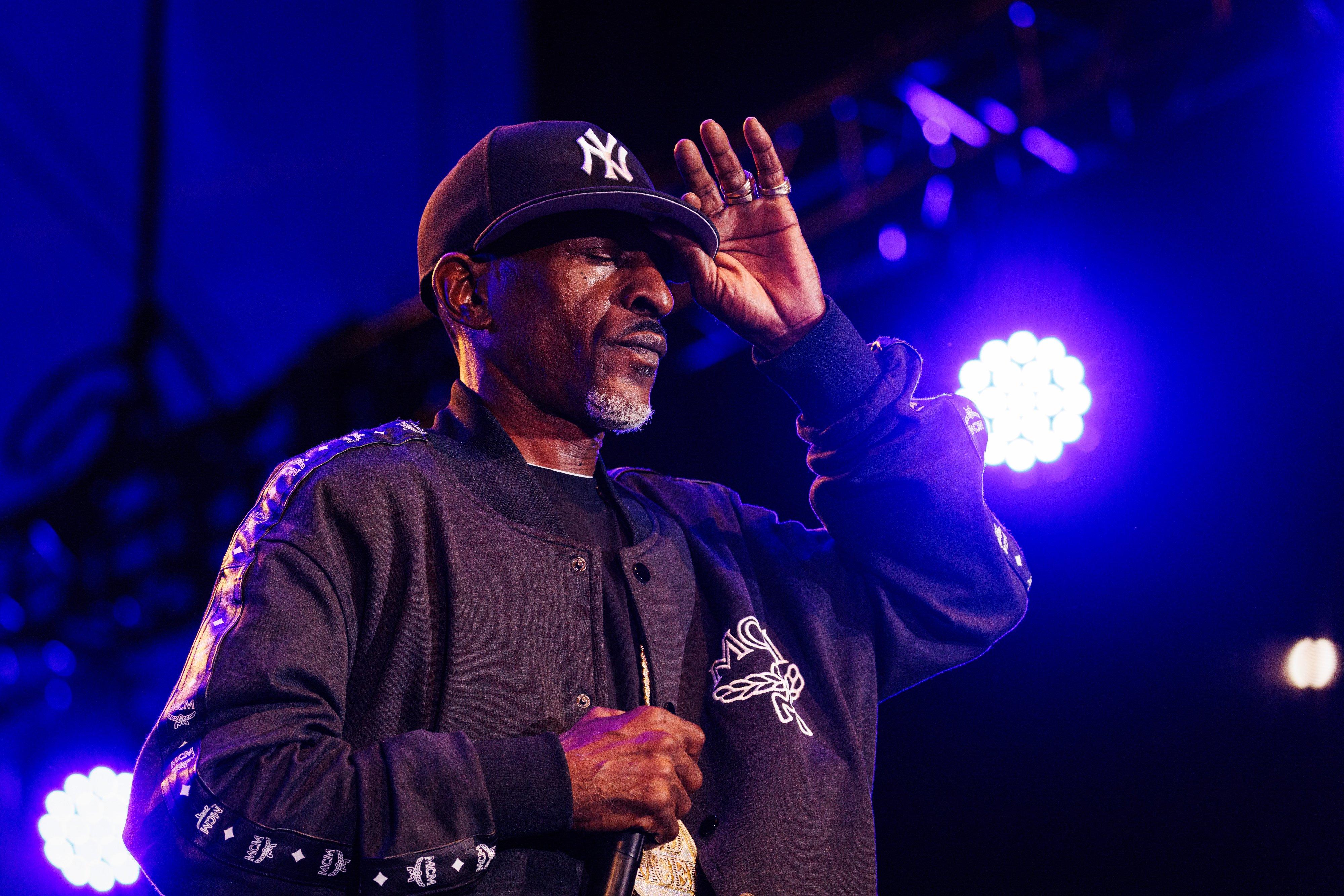
Photo: Richard Bord
feature
On Rakim's 'G.O.D's Network (REB7RTH)' The MC Turned Producer Continues His Legacy With An All-Star Cast
On his first project in 15 years, "God MC" Rakim produced seven songs and called on some of hip-hop's biggest names. The legend and his team detail his new album and working with Nipsey Hussle, DMX and Snoop Dogg.
Every album comes with a backstory, but not many come with two. Rakim's new project G.O.D's Network (REB7RTH), out July 26, came together in a few quick months, from signing a deal in February 2024 to completion in June. The process was spurred by one dedicated A&R person frantically combing through his network of rappers to get guest verses over beats produced by the God MC himself.
But to hear that A&R man, Matt "M80" Markoff, tell it, creating the seven-song project didn't take four months. It took four years.
"I've known [Rakim's longtime manager] Matt [Kemp] and Rakim since 2007," Markoff tells me when I get him on the phone in late June. "They're used to getting calls from me a couple of times a year just for, like, show referrals, verse referrals, things of that nature."
Back at the beginning of the pandemic, Markoff had been talking to the folks at Fat Beats, the venerable record store-turned-distributor that's a huge name in independent hip-hop. He mentioned Rakim's name to the company, and Fat Beats responded that they'd love a project from the God MC. The original pitch, Markoff remembers, was "a three or four song EP with some remixes."
Rakim quoted his price, Fat Beats agreed, and the project was underway, with the emcee meeting with producers to look for beats. But Rakim, who hasn't released a solo album since 2009's The Seventh Seal, is not one to be hurried.
"Ra was having [DJ] Premier and Pete Rock and Ninth Wonder and some of these people come to the studio," Markoff says. "Because of scheduling conflicts and stuff and, you know, normal course of life, it just wasn't right. The vibe wasn't there."
That's where Jazzy Jeff came into play. Rakim and the legendary DJ began working together and, per Markoff, it "just meshed." It seemed like, instead of a handful of songs, a full-length record was in the offing.
"As soon as they finish the first song, I walk into Fat Beats and say, ‘Hey, this is what we're doing now,'" the A&R man recalls. "Instead of Rakim with random producers, it's Rakim/Jazzy Jeff. That'll be huge."
Then…nothing.
A few years pass, and the Rakim and Jazzy Jeff project is still unfinished. (Rakim described its status as "We have a couple records already done.") Fat Beats, which was on the auction block (it was eventually sold in March 2024), wants its money back. Rakim obliges, and everyone seems set to forget about the whole thing.
Markoff, however, was not about to give up on working with the man he calls "my favorite emcee of all time."
The revamped album started its life as not an album at all. Instead, the original conception was a model Markoff had used before: licensing beats by people not typically thought of as producers. In this case, he'd be offering aspiring rappers the chance to get beats by arguably the most influential rapper of all time.
"He's taken people who are not necessarily known as producers and put together beat packages for them," manager Matt Kemp says of Markoff. "And then, one of the things he does is he goes out and he licenses those beats through a company that he has. If you're a European artist that wouldn't necessarily have access to things like that, you can get it."
So that, as of February of this year, was the (revamped) plan: have Rakim do six beats and one verse, and sell non-exclusive licenses, so that any rapper, anywhere in the world, who wants to use them in a song of their own could do so. This, indeed, was a vision that was followed through all the way to the finish line — you can see the end result released July 12, priced between $700-$1,050 depending on what you want to do with the beats and the rhyme, here.
But along the way to creating that package, things got significantly more complicated. As Rakim was making the beats, he found he really liked them. In some cases, he even wanted to rhyme on them himself.
"As the beats started coming together and Rakim was really in the studio and we started putting the rhymes onto them, we realized that it was bigger just than that [original vision]," Matt Kemp said.
The wheels started turning. Rakim, the God MC, as a producer? That would be a project worth sharing with the world, not just a few aspiring artists.
As it turns out, unbeknownst even to many Ra fans, the rapper has been making beats since the beginning. In fact, he produced — and played drums on — one of Eric B and Rakim's classic songs, 1992's "Juice (Know the Ledge)." So producing an entire project didn't seem like such a big stretch after all.
"I always was attached to making beats," Rakim explains to me. "But I got to the point where I'm confident with my production now. I got the chance to produce the album and jumped at the opportunity."
Rakim, as has been well documented over the years, comes from a musical family. His older brother Ronnie was a keyboard player of some note with his own claim on rap history, his other brother Stevie is also keyboardist who performed on some Eric B. and Rakim songs, and the rapper's aunt is the late R&B legend Ruth Brown. So when making beats, Ra will often play drums, bass, guitar, or piano. (He cops to enlisting one of his brothers if the keyboard part gets too complicated.)
He describes his production style this way: "You try to add on to the sample, and enhance certain sounds that you hear. Or you might just add a melody that you feel enhances the sample as well."
In addition to playing instruments on the project, Rakim also plays the turntable.
"I always knew how to DJ, and I like being able to enjoy the project from a different seat," he tells me. "I enjoyed putting the music together, coming up with the scratch patterns."
So with the musical side of the equation firmly in place, what about the vocals? Rakim was inspired to add verses on a few songs, and hooks on a few more.
"It's mostly a project that I was supposed to be producing," he explains. "In the midst of that, there's certain beats that I'm playing and I'm like, ‘I gotta rhyme on this one,' or, ‘I got a rhyme that fits this one perfectly.'"
The question was, what to write about? After a decade and a half without an album, the rapper had a lot to discuss, and needed to find new ways to say it.
For the project's lead single, "BE ILL," he got in plenty of internal rhymes. And the song's tempo allowed him to come up with different rhythms.
"When tracks are at that speed, I'm able to manipulate time and space to come up with different rhythms because I have so much time and space to deal with," he says. "It was one of them songs I loved rhyming to. Just having fun with words and phrases, and at the same time having so much on my mind to say."
"I'm trying to say a lot of things," Ra admits when discussing his writing on the album. "It's hard to just come back and say a verse when you've been gone so long. So I tried to be very specific and cautious with the words that I chose, and try to be entertaining at the same time. So it was a little nerve wracking."
Even with Rakim's vocal contributions (he ends up with either verses or hooks on six of the project's seven tracks), more was needed to complete the songs. That's where Markoff really got going.
"Literally, I didn't waste a single day," he remembers. "I was calling the artists in my network. I reached out to each artist one by one, and let each artist go through the folder [of beats] with me and make their picks."
Among the artists Markoff reached out to were several members of the Wu-Tang Clan. He has a long relationship with the crew, having worked with them on several projects including the well-regarded 2005 album Wu-Tang Meet the Indie Culture.
Markoff recalls the exact moment when he lined up Wu member Masta Killa for his appearance on what became "BE ILL."
"I was at the first ever Wu-Tang Clan residency in Vegas, and I told Masta Killa, ‘Dude, I just got these Rakim beats 10 minutes ago.' I played 10 seconds of the second beat, which was the beat for ‘BE ILL.' And he was like, ‘That's the one.'"
A different Wu-Tang show was responsible for one of the album's other notable guest appearances, Cash Money stalwart B.G. The two met at the concert, and the Louisiana rapper was in the studio "48 hours later," Markoff recalls.
For a handful of artists he had good long-term relationships with, Markoff let them choose which of Rakim's beats they wanted to rap over. In addition to Masta Killa, he names Chino XL, Hus Kingpin, 38 Spesh, and TriState as being on that short list. After that, he says, it was all his decision.
The end result is a list of some of the top rappers in his Rolodex: Kool G. Rap, Method Man, Kurupt, Canibus, KXNG Crooked, Skyzoo, Joell Ortiz, and many more — including an outro from Snoop Dogg. But one of the most surprising things on the tracklist is that a number of the guests aren't alive anymore.
Nipsey Hussle, Prodigy, DMX, and Fred the Godson have verses on the record. All of them were people Markoff had worked with in some capacity over the course of his career. He says that all of the verses were "in my stash or under my ownership." So when he was looking for material for the Rakim project, they were a perfect fit.
The Nipsey Hussle contribution in particular stood out so much that the entire song, "Love Is the Message," was designed around it. The project's engineer placed Neighborhood Nip's verse first, and everyone else listened to that when recording.
"We kind of glorified who he is, and came up with the title ‘Love Is the Message' to put everything in perspective," Rakim tells me. "So everybody vibed off of that and everything that we implemented had to have that feel or had to be in that direction."
One thing Rakim noticed as he was listening to the contributions coming in? Many of them were paying tribute to him. In particular, B.G. says in his verse that he's "on a song with the greatest."
"To hear things like that from my peers is a beautiful thing," says Rakim, who also admits to tearing up when hearing Snoop Dogg praise him on the outro of one of the album's songs. "Hip-hop is one of the more, I guess, feisty genres. It's hard to get that love from your peers. So it's a real blessing to hear it from people like that, to hear what they think of you and to say that on records. A lot of people might think that of you, but would never say it on a record."
For Markoff, B.G.'s tribute was particularly meaningful because of the rapper's history. He began his career in a duo, and later a quartet, with another rapper sometimes considered the greatest of all time, Lil Wayne.
"For B.G. to have that history, but acknowledge Rakim — I was speechless," Markoff confides. "It was really cool to see. It's like, ‘I'm not just going to say my partner, my friend, my confidant Lil Wayne's the best because we grew up together.'"
Finally, after all the guest verses came in, the project was ready. Seven songs, entirely produced by Rakim, with raps by him and a broad cross-section of artists. The question, then: what exactly is this project? An album? An EP? Rakim's big comeback? A teaser for his eventual full-length return?
To Markoff, none of these labels are important. He's not concerned about fans being disappointed that a project under Rakim's name features only a handful of the rapper's verses.
"The fan is going to look at it however they want to look at it," he says. "The negative people will stay negative. It wouldn't matter if it was the greatest album of all time. The positive people that are so grateful that I stepped up to the plate to help bring new Rakim music to the world are going to love it."
After all, he continues, "The whole point originally when we started making it was letting his peers shine on Rakim beats. The fact that this project morphed into something that Rakim literally is on 95% of, I couldn't have asked for more of a blessing."
So Matt Markoff, the boy who fell in love with Rakim's music at 12 is now, three decades later, putting out music from his hero.
"Dream fulfilled," he says right before we hang up. "Now I gotta figure out what I'm going to do for the rest of my life."
Latest News & Exclusive Videos

2024 Paris Olympics Opening Ceremony: Watch Celine Dion, Lady Gaga, Gojira & More Perform

Ice Spice Is The Drill Queen On 'Y2K!': 5 Takeaways From Her Debut Album

New Music Friday: Listen To New Songs From Halsey, MGK And Jelly Roll, XG & More

Watch Young MC Win Best Rap Performance In 1990

The Red Clay Strays Offer A New Kind Of Religion With 'Made By These Moments'
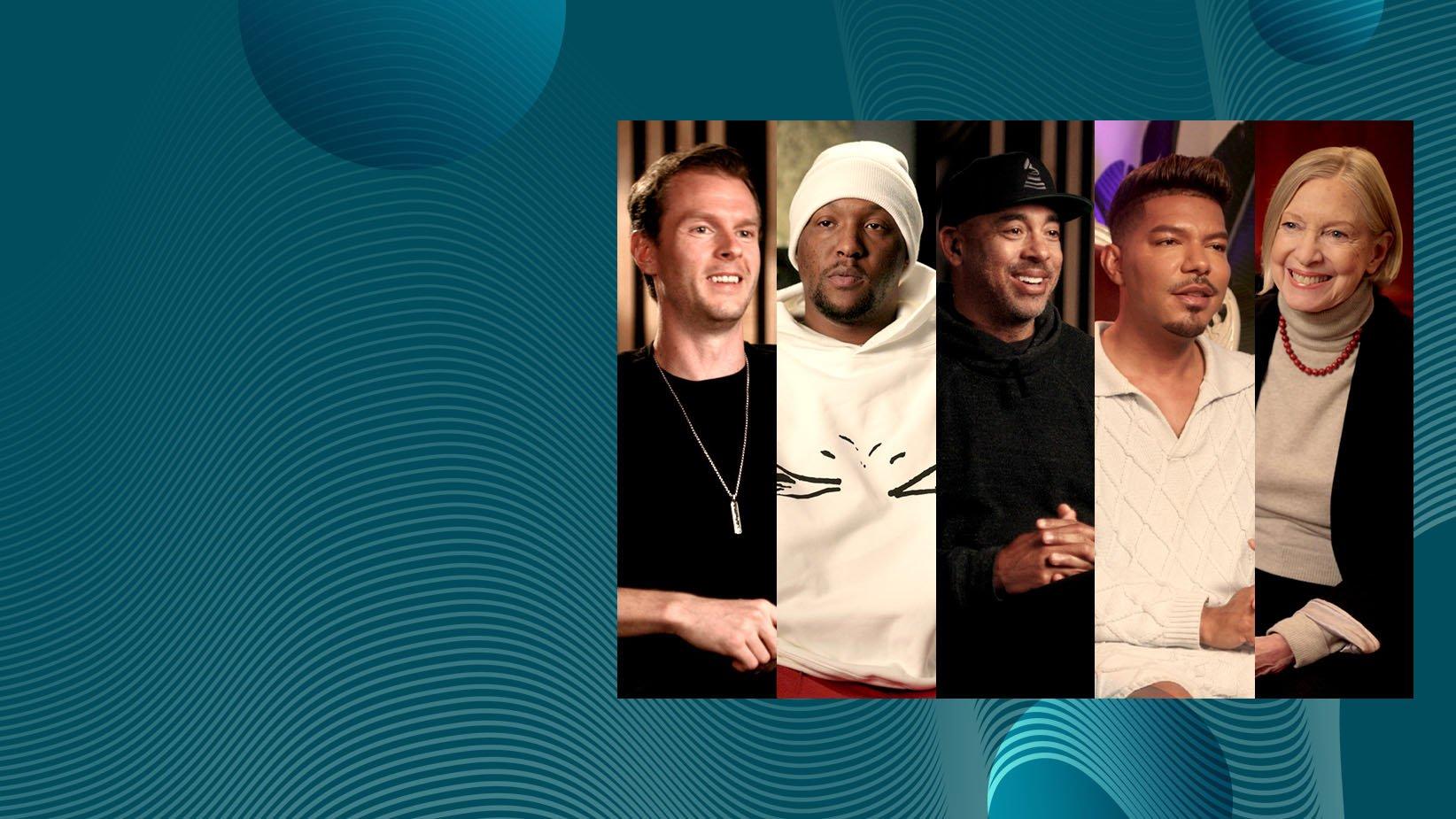
Photos Courtesy of the Recording Academy
news
The New GRAMMY GO Music Production Course Is Now Open: Featuring GRAMMY Winners Hit-Boy, CIRKUT, Judith Sherman & More
Enrollment is now open for GRAMMY GO's new specialization, "Music Production: Crafting Award-Worthy Songs," featuring appearances by GRAMMY winners and nominees. Learn music production and creative strategies from today's industry leaders.
Editor’s Note: Updated to add the Instagram Live video featuring Harvey Mason jr. and Stevie Mackey.
The Recording Academy continues its mission to empower music's next generation with the launch of its second specialization in the GRAMMY GO platform: "Music Production: Crafting Award-Worthy Songs."
This new course, a partnership between the Recording Academy and leading online learning platform Coursera, aims to bolster the technological and audio skills of music producers of all levels. The course, taught by Howard University professor and GRAMMY nominee Carolyn Malachi, features appearances by three-time GRAMMY winner and rap icon Hit-Boy, chart-topping and GRAMMY-winning producer/songwriter CIRKUT, artist and celebrity vocal coach Stevie Mackey, five-time GRAMMY nominee and Recording Academy CEO Harvey Mason jr., and 15-time GRAMMY winner Judith Sherman.
Enrollment for "Music Production: Crafting Award-Worthy Songs" is open now.
Mixing a unique blend of theory and practice, the course teaches music creators of all levels the advanced skills and tools to develop the mindset and confidence of an experienced producer and produce songs of the highest industry standards across all genres. Explore the wide-ranging roles of a music producer, develop critical listening and analysis skills, and master the technical aspects to create music and compositions that cut through the noise. The course's applied learning approach allows learners to sharpen their pre-production skills, utilize Digital Audio Workstations (DAWs) effectively, and produce vocals, instrumentals and samples collaboratively. Through critical listening exercises and discussions, learners will refine their abilities to deliver professional-quality demos.
To celebrate the launch, the Recording Academy hosted an Instagram Live session on Tuesday in which guests Harvey Mason jr. and Stevie Mackey discussed the evolving role of music producers, strategies for working with artists, key elements of top-notch productions, common mixing mistakes, tips for keeping the creative process fresh, and enrollment details for the course.
Building on the success of its first specialization, "Building Your Audience for Music Professionals," GRAMMY GO continues to offer industry-focused education tailored for emerging and established music creators and professionals alike. The innovative platform provides learners with real-time insights from leading music industry figures, ensuring the content remains practical and up to date. GRAMMY GO will also serve as an essential tool in the Recording Academy's global expansion into Africa and the Middle East, empowering music creators through enhanced training, bridging knowledge gaps, and fostering connections within the global music community.
Launched in April in partnership with Coursera, GRAMMY GO is the Recording Academy's first creator-to-creator platform, offering innovative courses tailored for both emerging and established music professionals. The initiative accelerates the Academy's global mission and reinforces its commitment to music education, providing a seamless bridge between all Academy initiatives.
Learn more about GRAMMY GO and the "Music Production: Crafting Award-Worthy Songs" and "Building Your Audience for Music Professionals" specializations.
Watch the Instagram Live session with Harvey Mason jr. and Stevie Mackey in full below:
More Music Education News & Initiatives
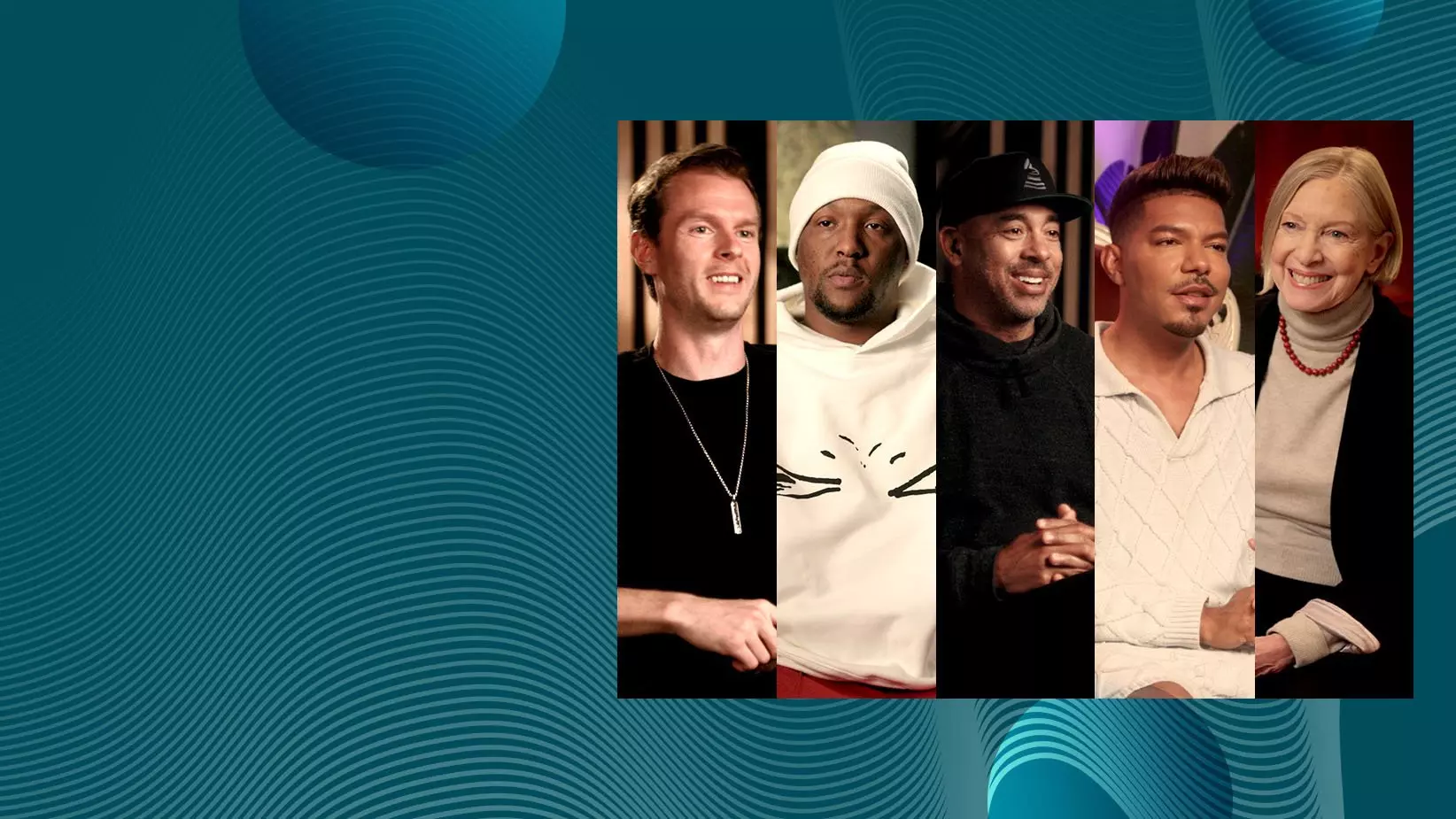
The New GRAMMY GO Music Production Course Is Now Open: Featuring GRAMMY Winners Hit-Boy, CIRKUT, Judith Sherman & More
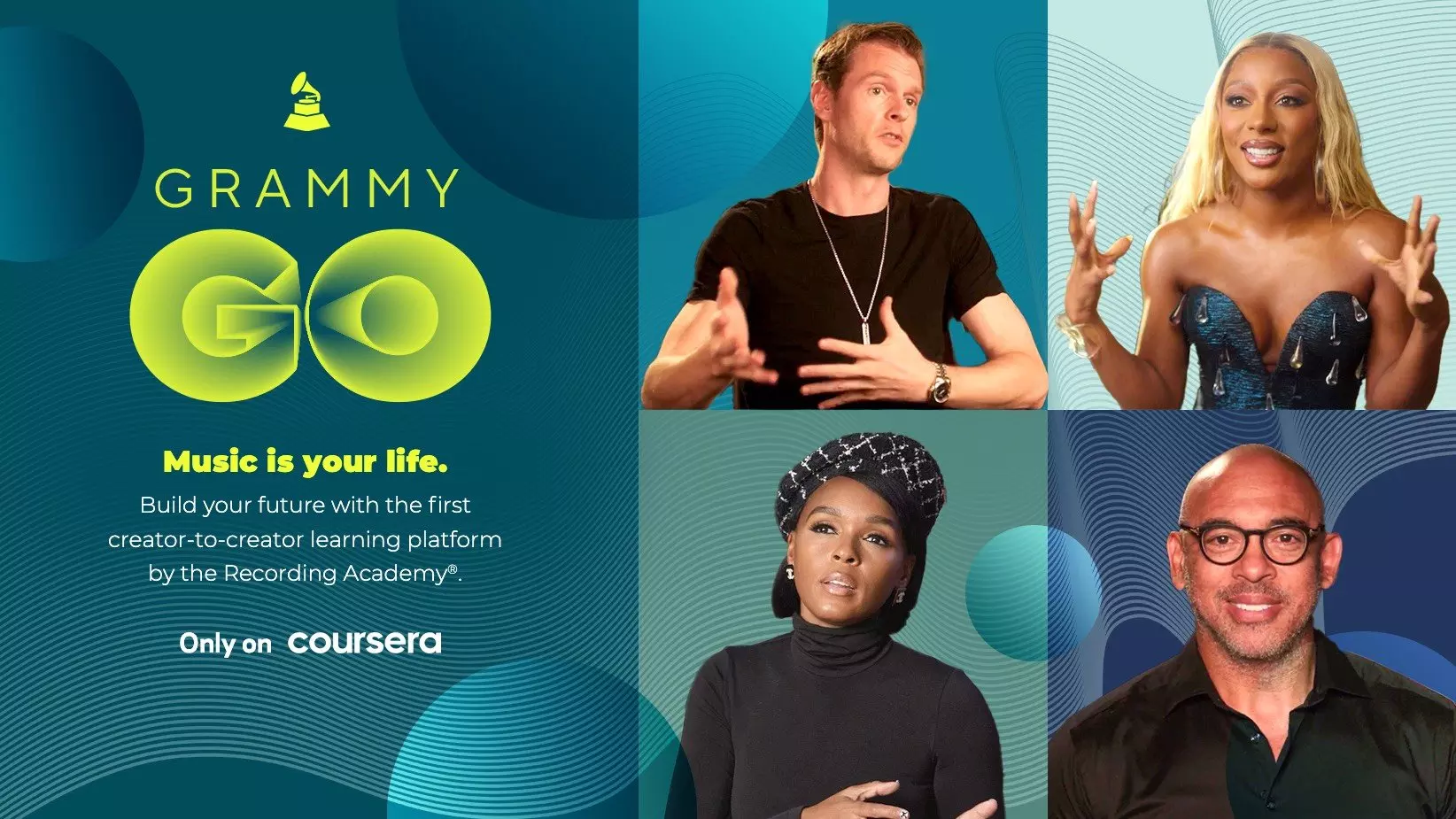
Recording Academy & Coursera Partner To Launch GRAMMY GO Online Learning Initiative
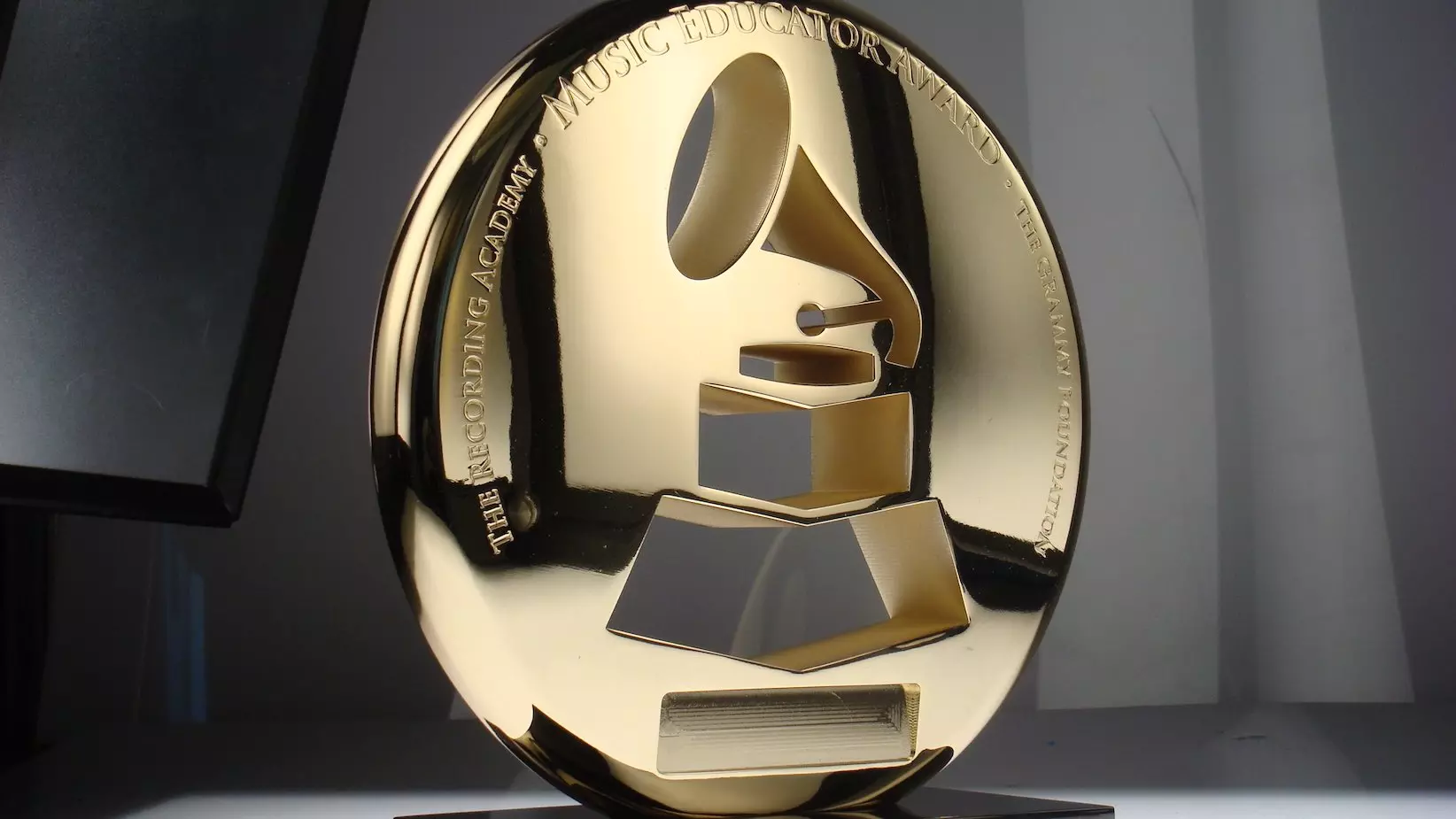
25 Semifinalists Announced For The 2024 Music Educator Award
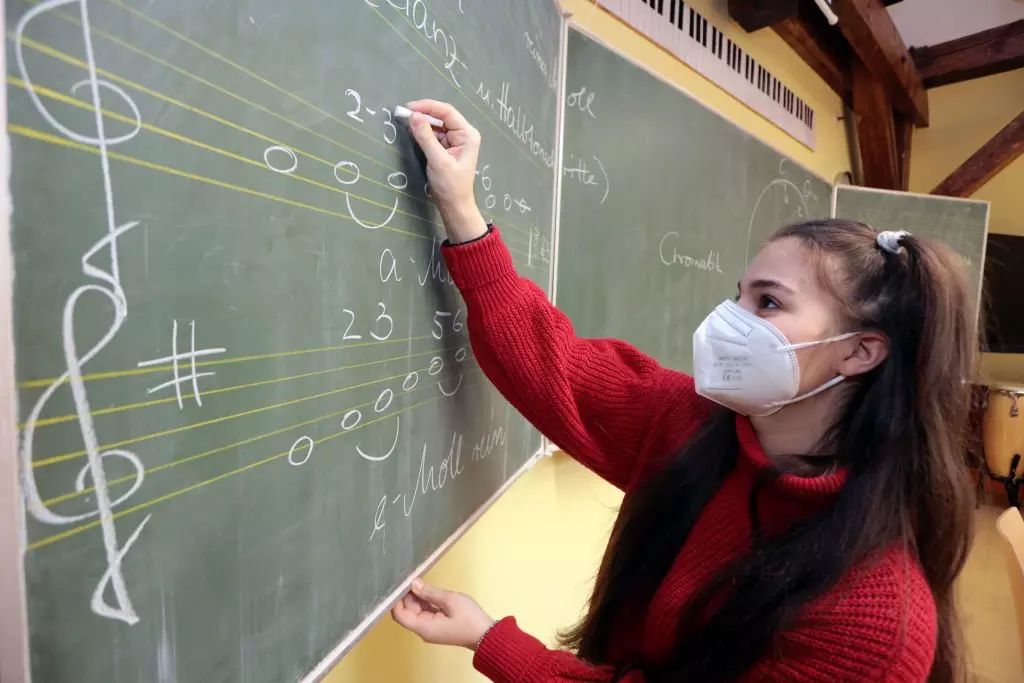
5 Music Teachers Share The Transformative Power Of Music Education
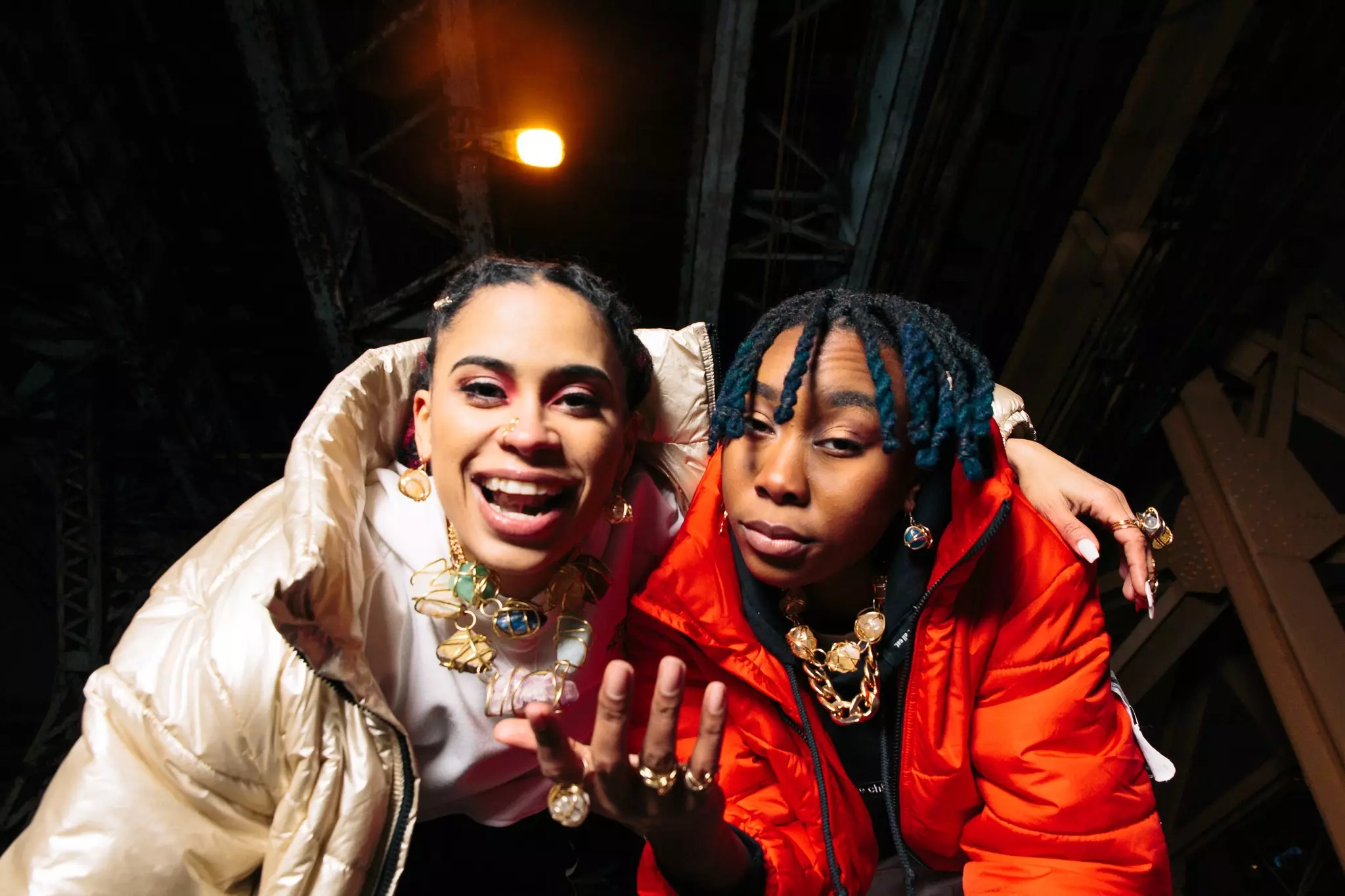
Meet Mother Nature, The Chicago Rap Duo That Teach & Live Self-Expression Through Their Miseducation Of HipHop Youth Workshops
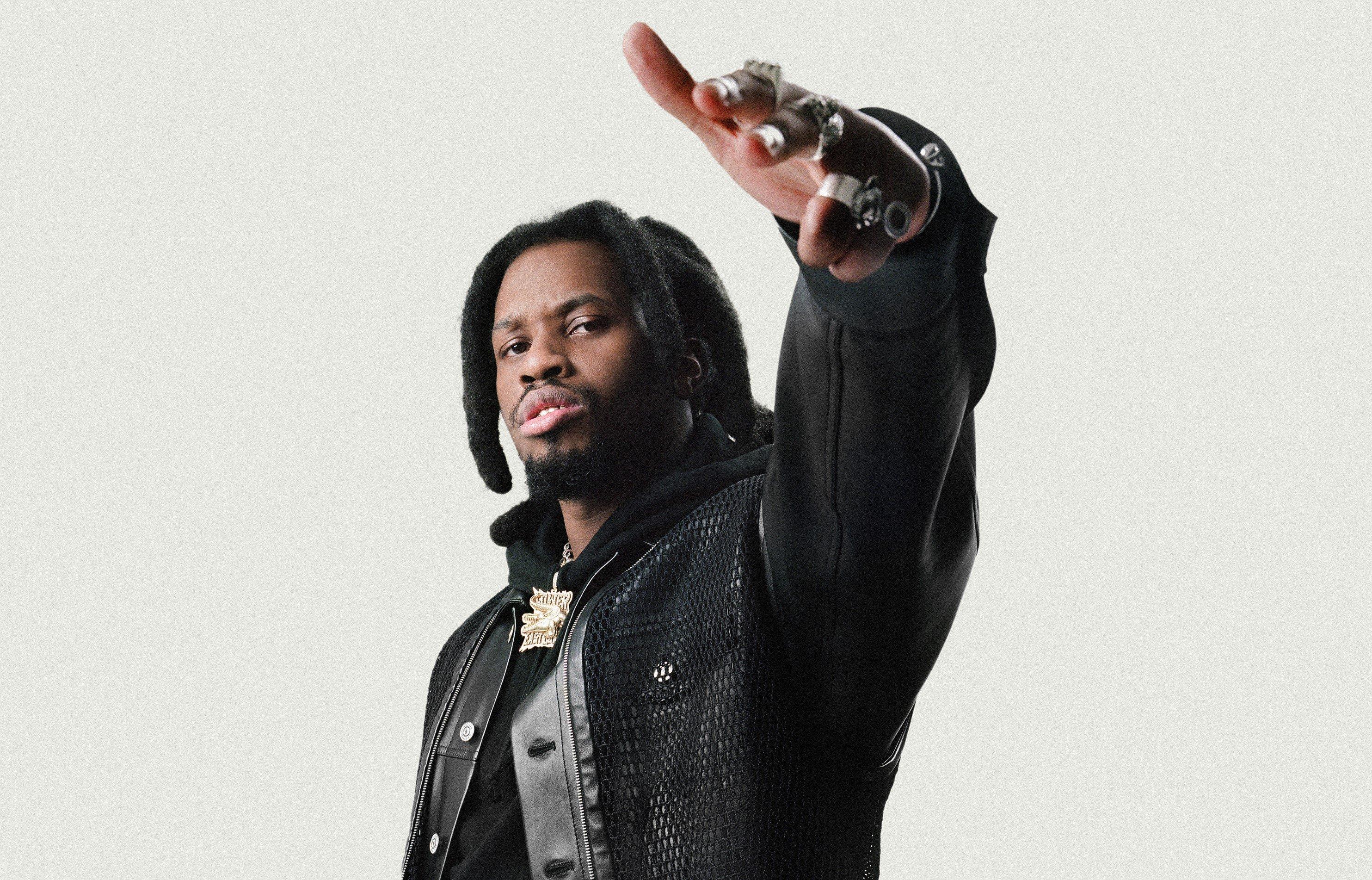
Photo: Giovanni Mourin
interview
Denzel Curry Returns To The Mischievous South: "I've Been Trying To Do This For The Longest"
Over a decade after he released 'King of the Mischievous South Vol. 1,' Denzel Curry is back with 'Vol. 2.' The Miami rapper details his love of Southern hip-hop, working on multiple projects, and the importance of staying real.
Denzel Curry isn’t typically one for repetition. His recent run of critically acclaimed projects have all contrasted in concept and musicality.
The Miami Gardens native has cascaded through boom-bap, synth-soaked trap metal, and cloud rap throughout his catalog. But on his upcoming project, King of the Mischievous South Vol. 2, Curry returns to the muddied, subwoofer-thudding soundscape that he captured on the first installment back in 2012.
Curry was just 16 when he released King of the Mischievous South Vol. 1 Underground Tape 1996]. "I was a kid, man," Curry tells GRAMMY.com. "I was just trying to emulate my favorite rappers at the time who really represented the South. That was pretty much what I was on at the time – the Soulja Slims, the No Limits, but mostly Three 6 Mafia. And then I just put Miami culture on top of that."
Curry first explored the rough-cut "phonk" of Southern acts like DJ Screw and Pimp C as a teenager. His first mixtape, King Remembered Underground Tape 1991-1995, caught the attention of then-rising rapper and producer SpaceGhostPurrp. He shared Curry’s project on his social media accounts, making him an official member of South Florida’s Raider Klan.
Read more: A Guide To Southern Hip-Hop: Definitive Releases, Artists & Subgenres From The Dirty South
The now-defunct group is well behind Curry, who’s ascended from the infancy of his early SoundCloud days to mainstream success. But the rapid-fire delivery and hazy, rough-cut sounds of early Southern rap are still soaked into his musical fibers.
Reignited by the same musical heroes that led to Vol. 1, Curry is comfortable in old sonic form. Vol. 2's lead singles "Hot One" (feat. A$AP Ferg and TiaCorine) and "Black Flag Freestyle" with That Mexican OT fully capture the sharp-edged sound that stretched from Port Arthur, Texas to the Carolinas.
The rapper wanted to go back to the KOTMS series nearly a decade ago, but other projects and outside ventures derailed his return. "I tried to do this thing multiple times," Curry tells GRAMMY.com. "I remember revisiting a [social media post] from 2015 that was like, ‘KOTMS Vol. 2055 is now going to be called Imperial.’ I’ve been trying to do this for the longest."
A string of bouncy, syrup-pouring, and playalistic Southern trap songs led him back to familiar grounds. The new 15-song capsule features Juicy J, 2 Chainz, Project Pat, That Mexican OT, Maxo Kream, and others inspired by the same pioneers that fall below the Mason-Dixon line.
GRAMMY.com sat down with Curry before the release of King of the Mischievous South Vol. 2 on July 19. The "Ultimate" rapper revealed his "Big Ultra" persona, his ability to crank out hits from his bedroom, and his recent discoveries being "outside."
This interview has been lightly edited for clarity and length.
What inspired you to revisit the 'King of the Mischievous South' series?
I was making two projects at once, and there was a through-line from the second half of the project. The second one I was working on kind of just manifested itself into what it is today, 12 years later. And it’s called King of the Mischievous South Vol. 2 because it has the same sonics as the first one.
You mentioned Three 6 Mafia being a big inspiration for Vol. 1. But what about Vol. 2?
The first KOTMS was obviously Three 6 Mafia, and then Lord Infamous was really the person I looked up to, God rest his soul. I get my rap style from him — the rapid flows and stuff like that. You can even hear it on "Walkin’" and "Clout Cobain." But since I’m from Miami, I’m talking about stuff that predominantly happens in Miami. And I’m influenced by Soulja Slim, Master P, DJ Screw, UGK, Trina, Trick Daddy, and Rick Ross.
How did you juggle the two different projects at once?
When I wasn’t working on one project, I was working on the other one. Sometimes I would be working on the same two projects on the same day. I was like, If this one won’t see the light of day until next year, this one has to hold fans over. And the one that was supposed to hold fans over ended up having a crazy through-line.
What were the studio sessions like?
When it came down to the production, I was just making these songs on the fly. A couple came out of Ultraground sessions, but the majority of the songs were made in my bed — just how it was with the first one. "Hot One" was made in my house downstairs, and "Hit The Floor" was made in a random room in an AirBnb. And I think the rest of the songs were made in an actual studio.
I was just flowing, doing my thing, and figuring things out. I was working on one project, and when I wasn’t getting called back to the studio, I was working on another one on the side. The grind didn’t stop.
Was there an element or feature that you really wanted to explore?
I just knew I wanted certain rappers to be featured on [project]. When I was working on "Set It," I originally wanted PlayThatBoiZay. But he didn’t get the record done or whatever the case may be. So, I sent it to Maxo Kream, and he ended up just doing it. And when I made "Wish List," I got Armani White on it. Me and him came off of doing "Goated," so getting that record done was really simple. He pulled up to the studio and he said, "This is tight," and then jumped on the record.
Some stuff didn’t make the cut because we couldn’t get certain people. But the majority of the stuff that made the cut, we were like, "Yes, we did that." Then having people like Ski Mask the Slump God, 2 Chainz, Project Pat, and Juicy J — all these guys played a role. I’m getting people from the South, whether they’re from Texas, Florida, or the Carolinas. And even people outside of the South, like A$AP Ferg and Armani White, they’re all influenced by the same artists.
Learn more: A Guide To Texas Hip-Hop: Definitive Releases, Artists & Events
Your persona on the album, "Big Ultra." Break that down for me.
This is how the name came about — my boy’s nickname is Mr. Don’t Fold. It’s kind of a play on "Mr. Don’t Play," so we came up with "Big Ultra" because I’m doing "ultraground" stuff. It wasn’t on some superpower s—, it’s just me, pretty much. It’s how I wanted to be presented on this tape. It’s just me at the end of the day, it’s no persona.
You’ve been in the rap game for a while. Do you consider yourself a veteran?
I think I’m mostly in a formation period because my best years haven’t even happened yet. I feel like I’m just getting my reps in, preparing myself for my 30s. You know, going through the bulls—, having good times, having bad times.
By the time I get to 30, 35, and 40 — God willing — I could have a fruitful career and not be backtracked by dumb s—. I see myself as someone with a lot to offer because I’m still young.
Do you care about garnering more fame or acclaim? Or is there no need for it?
All my projects are critically acclaimed. The main thing is staying good at what I do. That comes with a lot of effort, a lot of studying, and a lot of work. I take pride in my job and I have fun making music.
I think the hardest part is putting myself out there and being visible. I’m starting to understand that’s what I had to do. I got asked the same question five times in a row about when my album was dropping. I’ve been saying July 19 for the longest. Like, people really haven’t been paying attention? C’mon, bro.
What do you feel is the next step?
I’m just trying to be more visible where the younger generation is at. Most people know me for "Ultimate," "Clout Cobain," or the [XXL Freshman Class] Cypher if I’m being totally real with you. But in due time, everybody has blessings in certain parts of their career. And I’ve been blessed to have a career this long.
All I have to do is just deliver, be real with myself, and do what I have to do. I got to lean into being outside. I didn’t know who messed with me or who liked my stuff until I started going outside and talking to people. You never know who rocks with you until you're outside.
As far as the music and experience, where does the album rank for you?
I didn’t think about where I’d rank this. We had a whole decade of producing great records, and people look forward to the album experience more than the single when it comes to me. This is what it is, and I just want people to enjoy it. It’s not something to put too much effort or thought into. It’s something you can bump into the club, or you could go to a show and turn up to it. That’s where I’m at with it.
Are there any other sounds or genres you want to explore?
It’s going to happen when it’s supposed to happen naturally. But I do want to explore pop and R&B a year from now. I want people to be able to sing my songs and stuff like that.
Latest Rap News & Music

Ice Spice Is The Drill Queen On 'Y2K!': 5 Takeaways From Her Debut Album

Watch Young MC Win Best Rap Performance In 1990

On Rakim's 'G.O.D's Network (REB7RTH)' The MC Turned Producer Continues His Legacy With An All-Star Cast

5 Ways Mac Dre's Final Living Albums Shaped Bay Area Rap

Denzel Curry Returns To The Mischievous South: "I've Been Trying To Do This For The Longest"
